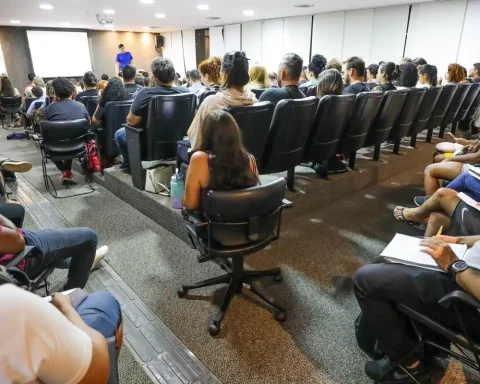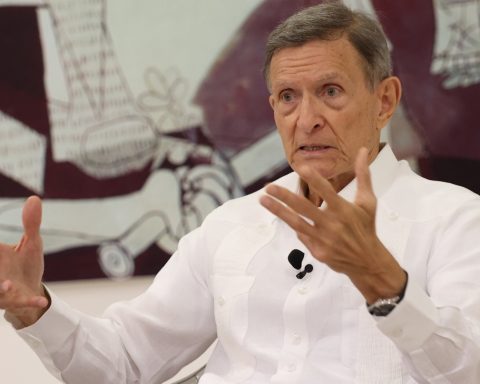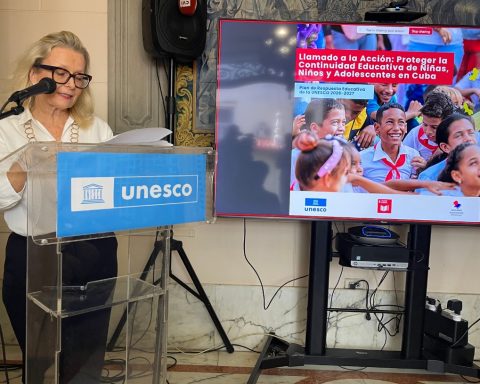If Odorico Paraguaçu were a candidate for mayor of Sucupira in the next municipal elections, on October 6, he would have difficulty getting elected. To get there, the soap opera character The Beloved (1973) should abandon populist discourse and the practice of exchanging favors for votes and adopt a political platform with effective proposals for health, education, care and maintenance of the city, public safety, sanitation, infrastructure and employment, recurring themes in electoral research.

“I think that mayors like Odorico Paraguaçu are fortunately becoming extinct. He is no longer a paradigmatic type,” says economist Jorge Jatobá, a retired professor at the Federal University of Pernambuco (UFPE) and former national secretary of Employment and Salary Policy (1995-1998).
According to the economist, instead of the clientelist profile of the character created by playwright Dias Gomes (1922-1999) for the theater, and later seen on television, “consistent speeches” and proposals that can generate jobs win votes in local elections. “Mayors have to be developmentalists, in the sense of promoting business and investment opportunities in their municipalities. Employment is the result of economic growth.”
To achieve this, candidates for new mayors need to “keep their vision focused on the growth of the local economy” and, if elected, attract businesses, “improving the municipality’s infrastructure, access to the city and the qualification of the workforce.”
According to Jatobá, this requires skills to articulate and involve civil society and local productive forces, such as rural entrepreneurs and traders. It also has a positive impact on mobilizing the state government and even the federal government around the municipal agenda. “This creates a virtuous circle in which the greater the growth, the greater the generation of income, the greater the investment, and the greater the productive capacity.”
“The better managed a city is, the more attractive it becomes to new companies. And the better managed it is, the more comfortable the companies already in the area feel about implementing their projects and hiring people,” confirms economist Cláudio Hamilton Matos dos Santos, planning and research technician at the Institute of Applied Economic Research (Ipea). For him, “economic growth, in general, is the combination of public and private efforts in the same direction.”
In the opinion of lawyer Paulo Ziulkoski, president of the National Confederation of Municipalities (CNM), “employability, in itself, is a recurring theme for the positive or negative evaluation of the manager. But, in addition, the quality of the public service provided and the incentive for the private sector to also assume its role are important.”
Focus group
“What will differentiate a good mayor from a bad mayor is the ability to induce development,” agrees political scientist Karina Duailibi, a specialist in qualitative opinion polls, such as focus group analyses in which voters explain why they vote or not for a particular candidate. She believes that “employment is now part of the city hall’s demands,” and the issue has been on the rise since the second decade of the century.
Since then, Brazil has seen a deconcentration of jobs in large metropolitan areas in favor of medium-sized cities (100,000 to 500,000 inhabitants), motivated by agribusiness, the opening of new health units and the internalization of professional training in new campuses of federal and state universities (higher education courses) or federal institutes (technical courses).
With over 20 years of research experience in several cities in Brazil, Karina has noticed that positive evaluations of mayors have become common when they are identified with urban transformation, the arrival of companies and opportunities. Voters participating in focus groups believe that the “ideal mayor” has the ability to induce development. “Today, this is part of expectations.”
Sociologist Jorge Alexandre Neves, full professor at the Federal University of Minas Gerais (UFMG) and director of the International Center for Public Management and Development, states that the employment agenda “is a fundamental topic and is usually among the most relevant in opinion polls.”
He warns that the lack of proposals for job creation and the lack of attention to the issue on the part of candidates can lead to setbacks, especially if the candidate is a mayor seeking re-election. “This can negatively affect the campaign if a neighboring municipality receives a lot of investment that brings good jobs and the voter’s city does not attract resources.”
“There is a general belief among voters that city halls charge too much tax, which is why companies don’t go to the municipality,” adds engineer and administrator Gérson Engrácia Garcia, owner of a market and opinion research institute based in Ribeirão Preto, in the interior of São Paulo.
Inductor or employer
Political scientist Karina Duailibi points out that voters’ perspectives change depending on the size of the city. In smaller municipalities, the greatest hope is that jobs will be created by the city government. “The smaller the municipality, the more dependent the population is on the municipal machinery.” In these cases, “the mayor is not an inducer of growth and job offers, but the employer himself.”
Small cities cannot do without the constitutional transfer of funds from the states and the Union and the payment of social benefits, retirements and pensions. “The more the municipality is dependent on this, the stronger the city hall is as an employer,” he emphasizes.
Cláudio Hamilton Matos dos Santos, from Ipea, highlights that transfers from the Union and states result from the decentralization of public policies. “Municipalities have had more and more responsibilities and more and more resources to exchange these responsibilities”. Therefore, “municipal employment has grown very strongly over the last two decades of this century.”
The president of CNM, Paulo Ziulkoski, states that municipalities have the largest share of public servants in Brazil, employed in the provision of essential services to the population. Data from 2022, passed on to Brazil Agency According to the entity, city governments had 2.3 million education professionals. In health, there were 1.3 million professionals working in basic care and other services. In the administrative area, city governments employed more than 1.2 million civil servants and technicians. And in general services, such as cleaning and food, there were 940 thousand municipal employees.
The CNM estimates that the average salary of municipal employees in that year was R$3,604. The salaries paid vary according to the position the employee holds. Thus, the average salary of doctors was R$11,000. Employees in cleaning and food services had an average salary of R$1,800.
Underemployment
According to the 2022 Demographic Census (IBGE), seven out of ten Brazilian municipalities (a total of 3,935 cities) are considered small, with up to 20,000 inhabitants. In these cities, salaries are lower and employability is also lower.
“People in smaller cities don’t have many job opportunities. They either work for the city hall or in local businesses – which don’t even pay the minimum wage and don’t register their employees. These people live off underemployment,” says Gérson Engrácia Garcia.
According to him, the profile most exposed to underemployment and even unemployment is that of people over 40 years old without a job, mothers who want to return to the job market and young people who, after finishing high school, “have nothing to do”.
In these circumstances, the alternatives are to move to more attractive cities or to try to find underemployment in the city itself. “So, one works as a motorcycle taxi driver, the other does small repairs, provides a specific service, or sells trinkets. Women sell underwear, perfumes and cosmetics,” says the researcher.





















